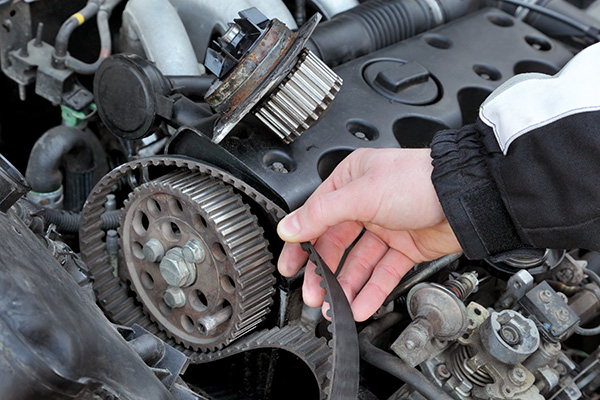
If you’ve ever wondered about the ticking time bomb in your engine, it’s likely the timing belt. While it’s not a component you think about daily, the timing belt is crucial to your engine's performance. Replacing it on time can save you from costly repairs and prevent catastrophic engine failure. So, how often should you replace your car's timing belt? Let’s break down the factors that affect the timing belt’s lifespan and what signs you should look out for to avoid potential disaster.
What is a Timing Belt
The timing belt is a critical part of your car’s engine, responsible for synchronizing the rotation of the camshaft and the crankshaft. In simple terms, it keeps everything in your engine running in harmony. Without it, your engine's valves wouldn’t open and close at the correct time, leading to poor performance or complete engine failure. This belt controls the timing of your engine's internal combustion process, ensuring that each piston and valve work together properly.
Over time, this belt wears down due to heat, friction, and general use, making it essential to replace it before it fails. If it breaks while driving, you could face extensive damage, including bent valves, cylinder head damage, and a hefty repair bill.
How Often Should You Replace Your Timing Belt?
Most manufacturers recommend replacing the timing belt every 60,000 to 100,000 miles. However, the exact interval varies depending on the make and model of your vehicle. Some cars may have timing chains instead of belts, which last longer, but if your car uses a belt, checking your owner’s manual for the recommended replacement interval is crucial.
The timing belt might need replacing sooner for older cars due to wear and tear. Even if you don’t reach the mileage limit, many experts suggest replacing the belt every 5 to 7 years, as rubber deteriorates over time. Neglecting this maintenance could lead to severe engine damage and expensive repairs.
What Are the Warning Signs of a Worn Timing Belt?
If you're nearing the recommended mileage for a replacement or if your car is showing any unusual symptoms, it’s time to consider replacing your timing belt. Here are some signs that could indicate your belt is nearing the end of its life:
Ticking Noises from the Engine
A ticking noise coming from the front of your car’s engine is one of the most common signs of a worn-out timing belt. This noise occurs when the belt becomes loose or stretched and can no longer maintain proper tension.
Engine Misfires
If the timing belt slips out of position, the engine’s timing becomes inconsistent, leading to misfires. This can cause poor performance, hesitation while accelerating, and rough idling.
Oil Leaks
Timing belts are often located near the front of the engine, where they are exposed to oil. If the belt is cracked or damaged, it may allow oil to leak, which can further deteriorate the belt and lead to failure.
Check Engine Light
Your check engine light may illuminate for various reasons, but one of them could be timing belt issues. If the belt is damaged or misaligned, it can cause your car’s computer to detect engine malfunctions, triggering the check engine light.
Factors That Affect Timing Belt Lifespan
While most manufacturers provide a recommended mileage for timing belt replacement, several factors can impact its lifespan. Being aware of these can help you make more informed decisions about when to replace the belt:
Driving Conditions
If you frequently drive in extreme heat, cold, or humid environments, your timing belt may wear out faster than expected. Stop-and-go traffic and heavy loads can also put extra strain on the belt.
Vehicle Age
Even if you don’t drive your car often, the age of the belt still matters. Rubber components like timing belts deteriorate over time due to exposure to elements, and they should be replaced even if the car hasn't reached the mileage limit.
Maintenance History
Regularly checking your car's engine and maintaining its components will prolong the timing belt’s life. Keeping up with oil changes is also critical because oil leaks can degrade the belt.
What Happens If You Don’t Replace the Timing Belt?
Ignoring the timing belt’s replacement schedule can lead to severe consequences. When a timing belt breaks, it can cause the pistons and valves in your engine to collide, leading to costly damage. In some cases, it may result in a complete engine rebuild, which can cost thousands of dollars. This type of repair isn’t something you want to wait on, as a broken timing belt can happen suddenly, leaving you stranded or causing an accident.
By replacing the belt according to the manufacturer’s guidelines, you can avoid these costly repairs and keep your engine running efficiently for years to come.
Don’t risk catastrophic engine damage by ignoring your timing belt replacement. At Sherman Oaks Exclusive, our expert technicians will ensure your vehicle stays on the road with timely, professional service. Contact us now for a comprehensive inspection!